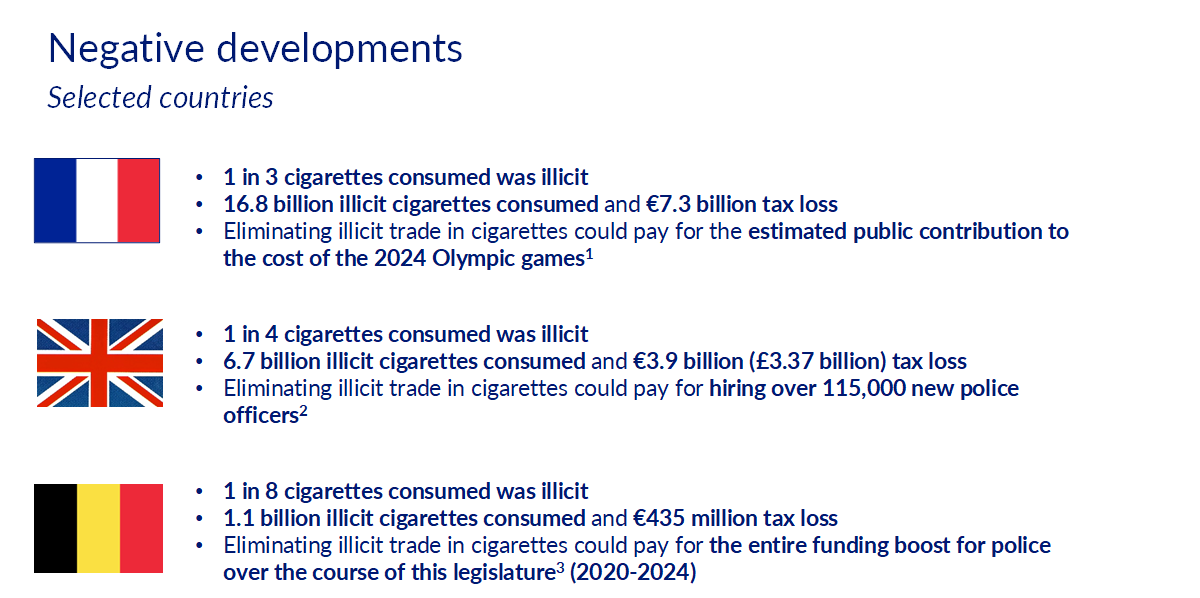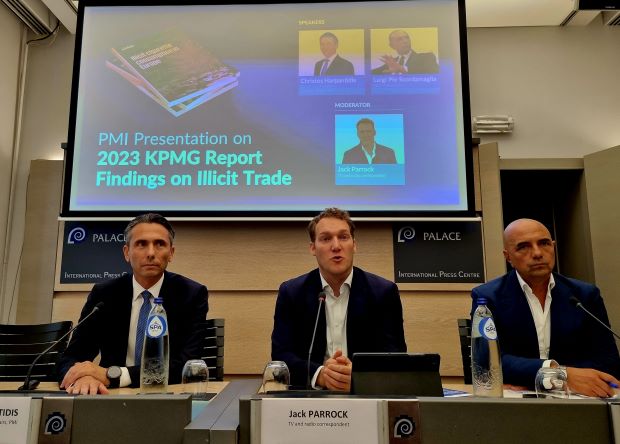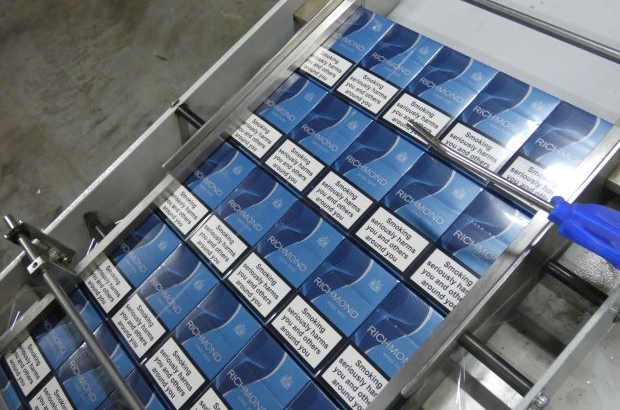- Daily & Weekly newsletters
- Buy & download The Bulletin
- Comment on our articles
Illicit consumption of cigarettes in Belgium rises to 13% says new report amid EU-wide increase
Some 13% of cigarettes smoked in Belgium are illegal, resulting in an estimated loss of €435m to the state in excise duties, according to a report by KPMG commissioned by Philip Morris International (PMI).
It revealed that 35.2bn cigarettes have been illegally consumed in Europe, representing 8.3% of total consumption in 2023. The findings confirm a steady increase of counterfeit cigarette consumption for the fifth consecutive year.
Part of a global problem linked to organised crime, illicit tobacco encompasses counterfeit and contraband cigarette, which fuel public health concerns as well as lost tax revenue.
Consultancy firm KPMG studied a total of 38 European countries in this latest report. They included the EU27, Moldova, Norway, Switzerland, Ukraine, the United Kingdom and, for the first time, Albania, Bosnia & Herzegovina, Kosovo, Montenegro, North Macedonia and Serbia.
The prevalence of illegal cigarettes is shown to vary across the continent. While France remains the leading market with 16.8bn illicit cigarettes consumed, other countries showed worrying trends, such as Ukraine (+1.1bn cigarettes), the UK (+0.8bn) and Greece (+0.6bn).
On a more positive note, KPMG data revealed that in 26 states, illicit cigarettes represented less than 10% of consumption. Italy, Poland, Romania and Spain were among those showing the greatest decrease.

One billion illicit cigarettes smoked in Belgium for the first time
But in Belgium, out of a total of 9.1bn cigarettes consumed, 1.1bn were fake or illicit, which represented a rise of 12.6% compared to 2022.
The overall increase in domestic consumption resulted in the symbolic milestone of one billion illegal cigarettes being passed for the first time.
Belgium has long been a major hub for the production and distribution of illegal cigarettes. With the port of Antwerp already serving as a gateway for illegal drugs, the country is further targeted by international gangs due to its proximity to illegal tobacco markets in France and the UK.
Across Europe, 113 clandestine production workshops were dismantled in 2023, including five in Belgium, said the report.

Organised crime involvement in illicit trade
In the EU27, illicit production is moving closer to higher-priced Western European target markets, according to KPMG data. Organised crime groups were also increasingly counterfeiting specific brands and products aimed at these markets and regions.
Philip Morris is supporting law enforcement agencies in tackling the problem, said senior vice president of external affairs Christos Harpantidis (pictured above left), while presenting the report findings in Brussels.
He blamed individual states’ high taxation as one reason for the rise in illicit traffic. “We consider this phenomenon to be a direct consequence of failed policy approaches that have not done enough to curb illicit trade and reduce smoking prevalence.”
Asked why illicit trade was an important issue for PMI, Harpantidis responded that “it should matter to everyone” and called the 52.2bn illicit cigarettes sold in Europe in 2023, a “really alarming” figure.
“If we want to tackle illicit trade, governments must deploy relentless law enforcement action against criminals profiting from the black market. This has proven successful over excessive taxation on consumer goods, or even prohibition,” he added.
“In order to end smoking overall, traditional tobacco control policies must be complemented with innovative approaches,” said Harpantidis, citing harm-reduction policies, including alternative tobacco products for adults who would otherwise continue to smoke.
Italy one of ‘best practice’ countries
With Italy among the countries reporting lower illicit traffic, it is considered a ‘best practice’ example. The CEO of agri-food association Filiera Italia Luigi Scordamaglia (pictured above right) outlined its supply chain model that was proving effective in these “challenging” times.
The integrated approach was applied to tobacco “just like any other agricultural product”, combining innovation with better security, traceability and efficiency. It involved a transparent partnership between private and public industry and law enforcement, which applied European track and trace regulations to prevent fraud.
“It is also important to explain to the consumer that smoking illicit products is a minor offence,” added Scordamaglia. “You are financing crime and mafia”.
For Harpantidi, the Italian approach underlined the importance of collaboration. “The only solution is working together and transparent clear positions.”
The PMI executive reiterated the need for governments to help its citizens, “who are suffering because of inflation” by applying better regulatory policies to tobacco.

Key findings of the report
- More than 35 billion illicit cigarettes consumed across the 27 EU member states in 2023, close to 2022 figures.
- France continues to be the largest illicit market in the EU, now accounting for 47.7% of total illicit cigarette consumption in the region.
- Illicit consumption has grown for the fifth consecutive year in Europe, reaching 52.2 billion cigarettes across the 38 countries included in the study. Nearly one in 10 cigarettes in the continent are illicit.
- More than 110 clandestine cigarette factories were dismantled in 2023, as illegal manufacturing sites are being set up nearer large end markets.
Photos: (main image) ©Belga/Thijs Vanderstappen; slides ©KPMG















